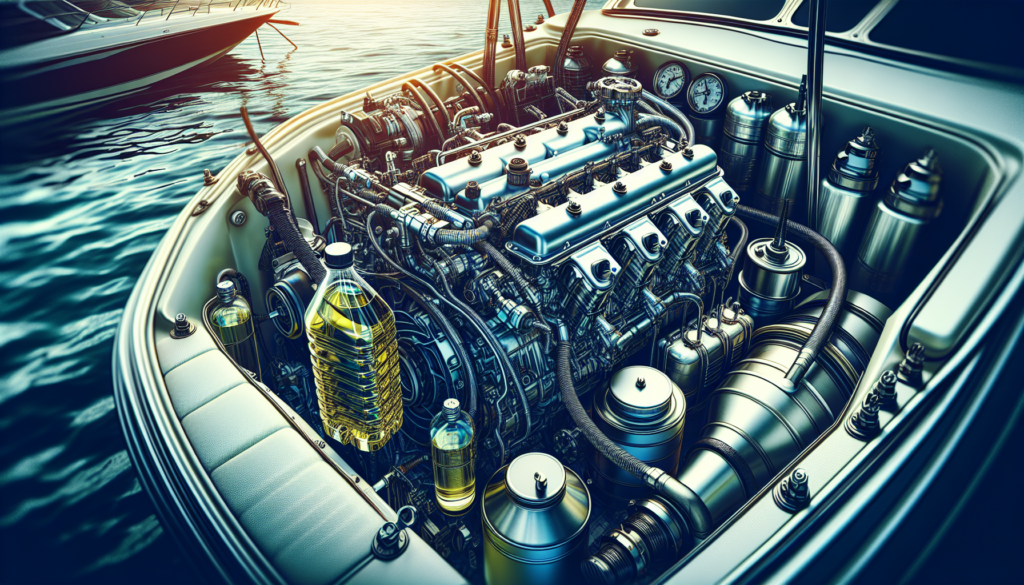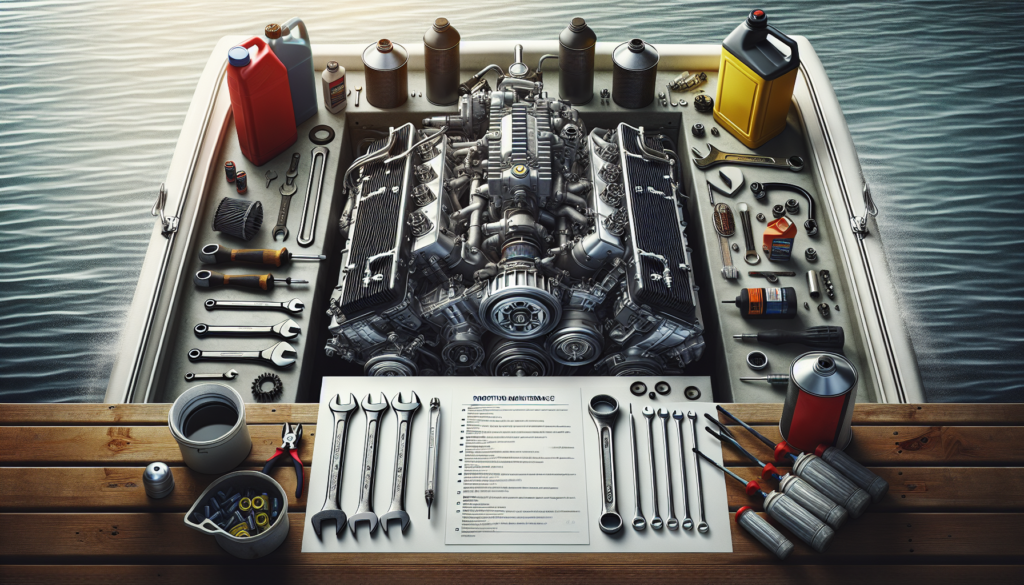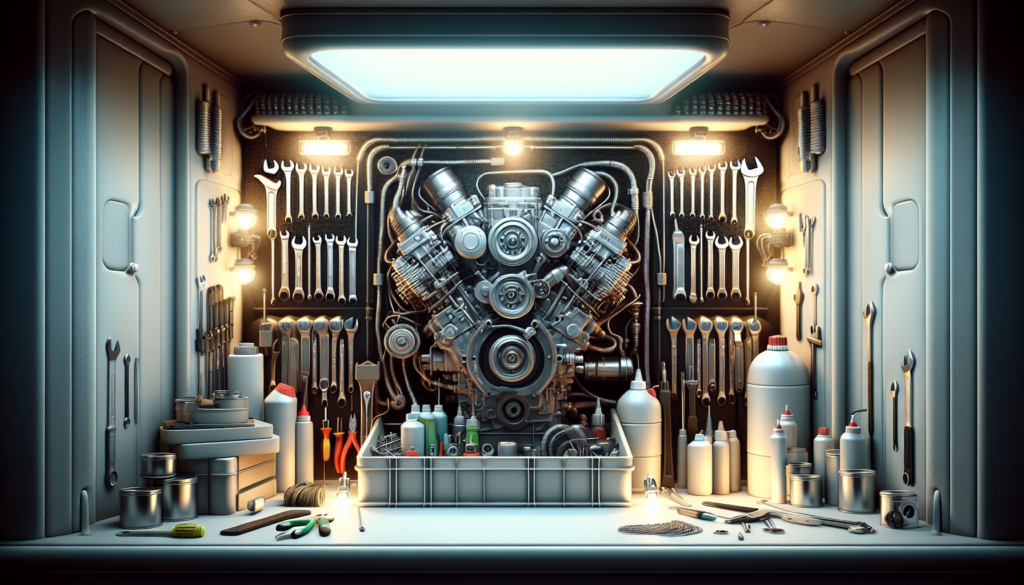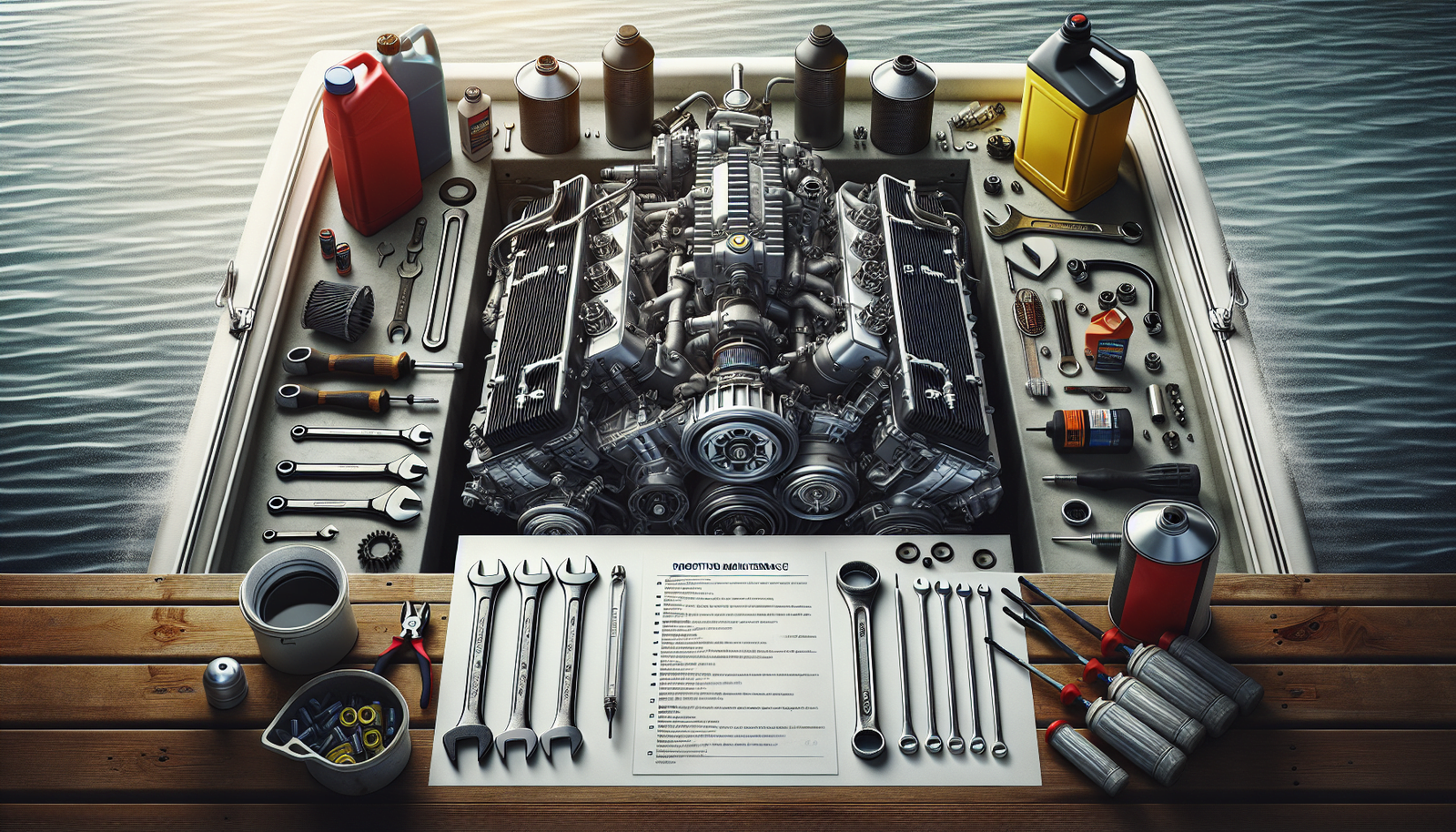You’re about to unravel the mysteries that lie beneath the hood of your beloved boat. “Boat Engine Maintenance: What You Need To Know” serves as your comprehensive guide to understanding your boat’s motor and the crucial steps you would need to extend its life. With a thoughtful blend of expert advice and practical tips, you’ll uncover the know-hows of a smooth sail, free of any unexpected hitches. So, get ready to sail through this informative passage as it enhances your knowledge and ensures you get the best out of your boat’s engine.

Understanding Your Boat Engine
Boating can be an exhilarating experience, one that gets even better with a deeper understanding of your vessel, particularly the engine. Gaining a deeper insight into your boat’s engine can equip you with the skills to keep it running smoothly for longer periods, reducing any chances of a breakdown while you’re out on the water.
Identifying the type of boat engine
The first step to understanding your boat’s engine is identifying the type of engine your boat uses. Different kinds of boats have different types of engines. Your boat could have an inboard engine, an outboard engine, a sterndrive engine, or a jet engine. The type of engine can impact both boat performance and the nature of maintenance required.
Understanding the basic components of a boat engine
A boat engine, much like a car engine, contains multiple moving and stationary parts that work together to power your boat. The key components include the propeller, the motor, the cooling system, belts, spark plugs, and the fuel system. Familiarize yourself with each of these parts to facilitate easier maintenance.
Knowing the function of each engine component
Each component of your boat’s engine has a specific purpose. The propeller, for instance, is responsible for moving your boat forward. The motor effectively converts fuel into motion, while the cooling system ensures the engine doesn’t overheat. Meanwhile, belts drive the alternator and water pump, the spark plugs trigger combustion in the cylinders, and the fuel system delivers the necessary fuel to your engine. Understanding these functions will help with maintenance and troubleshooting.
Regular Inspection of Your Boat Engine
Regular inspection is crucial to your boat’s engine maintenance.
The importance of regular engine checks
Regular engine checks can help identify potential issues before they become major problems. Routine inspections can extend your engine’s lifespan, improve fuel efficiency, and enhance overall boat performance.
What to look for during an engine inspection
During an engine inspection, look for any leaks, cracks, or signs of wear and tear. Check the oil and coolant levels, test the electricity supply, assess the status of filters, and inspect your belts and hoses for any visual deterioration.
Detecting signs of engine trouble
Signs of engine trouble can include unusual noises, changes in engine performance, fluid leaks, overheating issues, or difficulty in starting the engine. Spotting these signs early can save you from bigger headaches down the line.

Cleaning Your Boat Engine
A key aspect of engine maintenance is keeping it clean.
Why regular cleaning is important
Regular cleaning prevents buildup of dirt and grime that could otherwise hinder engine performance. It also enables you to spot any leaks or damages that may require immediate attention.
How to properly clean your boat engine
Cleaning your boat engine involves removing dirt and any other contaminants, either using a clean cloth or a specialised engine cleaner. Be cautious about the areas you are cleaning and take care not to dislodge or damage any parts.
Products safe to use when cleaning a boat engine
When cleaning your boat engine, ensure you’re using a non-corrosive cleaner. Specialised engine cleaning products that aren’t abrasive and don’t promote rust or corrosion are best.
Changing the Engine Oil
Regular oil changes are an integral part of boat engine maintenance.
Why it’s important to change engine oil
Oil lubricates the many moving parts of the engine, reducing friction and preventing overheating. Over time, the oil can become contaminated and lose its lubricating properties, which can cause wear and tear on your engine components.
How often to change boat engine oil
The frequency of oil changes depends on your boat’s engine type and usage. However, a good rule of thumb is to change engine oil every 100 hours of operation, or at least once a year.
Steps to do an engine oil change
To change your boat’s engine oil, you’ll need to warm up the engine, turn it off, remove the drain plug to let the oil drain out, replace the oil filter, and finally, refill with new oil. Always refer to your engine’s manual for more detailed instructions.

Maintaining Fuel System
The fuel system plays a crucial role in the functioning of your boat’s engine.
Understanding the fuel system
The fuel system of your boat engine is responsible for delivering fuel from the tank to the engine. It consists of a fuel pump, fuel lines, and a carburettor or fuel injector, depending on the type of your engine.
The effects of contaminated fuel
Contaminated fuel can lead to a whole host of engine problems, from reduced performance to serious engine damage. Regular inspection and cleaning of your fuel system can help prevent these issues.
How to clean and maintain the fuel system
maintaining your fuel system involves checking and replacing the fuel filters, inspecting the fuel lines for cracks or leaks, and ensuring the fuel tank is free from contamination.
Checking and Replacing the Spark Plugs
Spark plugs play a pivotal role in your boat engine’s operation.
Functions of spark plugs in boat engines
Spark plugs ignite the fuel costumed by the boat engine. Coordinated combustion process produces the energy needed to power the boat.
Signs of damaged or worn out spark plugs
Signs of damaged or worn-out spark plugs include difficulty starting your engine, poor engine performance, or increased fuel consumption. Regular inspection of your spark plugs can help catch these issues earlier.
The process of changing spark plugs
Changing your spark plugs involves removing the old ones using a spark plug socket, gapping your new spark plugs as specified in your engine’s manual, and then installing the new ones.

Maintaining the Cooling System
One of the key systems that prevent your engine from overheating is the cooling system.
Understanding the role of the cooling system
The cooling systems work to keep the engine temperature down. It either uses surrounding water or a coolant to absorb the engine’s heat, stopping your engine from overheating during operation.
Potential issues with the cooling system
Blockages, leaks, or pump failure are potential issues that can arise with your cooling system. Swings in engine temperature, poor engine performance, or visual leaks are signs something might be wrong.
How to maintain and troubleshoot the cooling system
Regular flushing can keep your cooling system running smoothly, while visual inspections can help identify any potential issues like leaks or blockages. If you detect a problem, refer it to a professional.
Checking the Boat Engine’s Belts
The belts in your boat engine play a multi-functional role.
Understanding the function of the engine belts
In most boat engines, belts drive the water pump and the alternator. They’re pivotal for your engine’s operation, making it important to give them attention during regular maintenance.
Signs of a failing engine belt
Signs of a failing or worn-out belt include visible wear, abnormal noises, alternator issues, or an overheating engine. Regular belt inspections can prevent your boat from breakdowns.
How to replace engine belts
Replacing engine belts involves loosening the tensioning system, removing the old belt, and then replacing it with a new one. Always follow your engine’s manual to correctly replace the belts.
Taking Care of the Propeller
Your boat’s propeller is crucial to its performance on the water.
The role of the propeller in a boat engine
The propeller converts engine power into thrust that moves your boat through the water. The speed, efficiency, and handling can all be effected by its condition.
Potential issues with the propeller
Propeller issues can include dents, cracks, or bends which can massively impact boat performance. Regular inspections can reduce the risk of such damage.
Maintenance tips for the propeller
To maintain your propeller, regularly remove it and check for any obstructions or damage. Lubricate the propeller shaft to ensure smooth operation and prevent rusting.
Seeking Professional Maintenance Help
There are times when it pays to call in a professional for boat engine maintenance.
When to seek professional help
While simple maintenance tasks can be performed yourself, more complex problems, or if you notice something you’re not sure of, should be handled by professionals to avoid causing getting more damage.
Choosing a reliable boat engine mechanic
Choosing a reliable mechanic is key to ensuring efficient maintenance. Look for certified technicians with good recommendations and a proven track record in servicing boat engines specifically.
Preparing for a maintenance appointment
Before taking your boat to a professional for maintenance, perform a brief inspection to communicate effectively any issues you might have noticed. Also check your maintenance records, this information can be vital to your mechanic.
Keeping your boat engine running smoothly isn’t too complex. With regular check-ups, cleaning, timely replacements of parts, and promptly seeking professional help when needed, you can ensure your adventures on the water are trouble-free.


[…] of the main reasons to winterize your boat engine is to protect it from the freezing winter weather. Your engine can sustain damage from the freezing […]